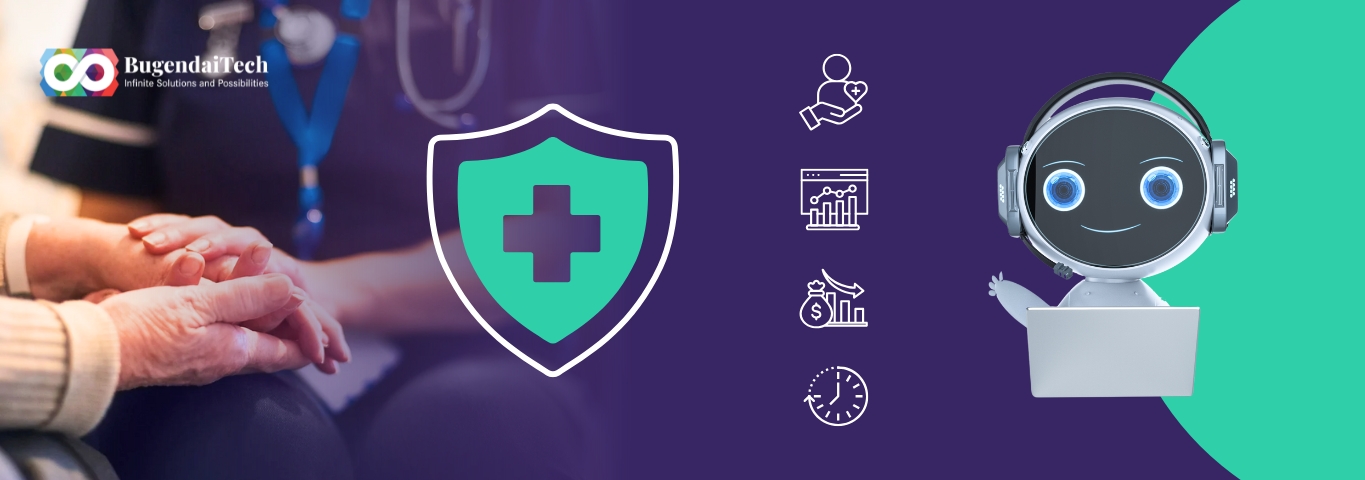Introduction
Integrating conversational AI in healthcare has moved from an extravagance to a need to convey powerful patient care. Patients presently expect healthcare interactions to be more open, advantageous, and customized than at any other time. A market study demonstrates that 66% of individuals have learned to utilize AI-driven home diagnostics and virtual services. Also, 74% would favor virtual clinical help as opposed to waiting for an in-person arrangement. Currently, accessibility has raised the bar for healthcare suppliers, as patients presently expect timely responses to their inquiries and a seamless experience while looking for healthcare services.
Demystifying Conversational AI: How It Works
Conversational AI in healthcare uses progressed calculations, natural language processing (NLP), and domain-explicit information to change patient care by giving personalized, proficient, and available services. These AI systems engage with clients or users through human-like interactions, working over the long haul by learning from information and interactions to more readily understand and answer complex medical inquiries. NLP innovation permits these systems to process and decipher medical terminology and patient communications effectively, while the integration of complete medical information guarantees that AI-driven chatbots and virtual assistants can precisely handle tasks going from wellbeing data dispersal to side effect evaluation and arrangement booking, consequently improving the general proficiency of healthcare conveyance.
Addressing the Challenges of Conversational AI in Healthcare
Information Accuracy
- Healthcare AI ought to handle complex medical terminology and exactly interpret symptoms to offer reliable guidance, requiring strong NLP algorithms trained on wide medical datasets.
- Continuous updates and integration of real-time data from EHRs and medical composing are critical to maintain congruity and work on diagnostic accuracy.
Data Privacy and Security
- Protecting sensitive patient data. For example, medical history and treatment plans are critical, requiring strong data privacy and security measures.
- Consistence with rules like HIPAA and GDPR, close by using encryption, anonymization, and extreme access controls, is fundamental to preventing data breaches.
Integration with Existing Systems
- Healthcare systems often integrate different disparate systems that ought to be composed with AI arrangements, introducing immense challenges.
- Adherence to standards like FHIR is critical for working with data trade and ensuring comparability and seamless data flow between systems.
Ethical Considerations
- Ethical hardships integrate maintaining patient welfare and trust, balancing automation with important human intervention, and avoiding overreliance on AI.
- Addressing biases in AI algorithms to forestall the spread of healthcare aberrations requires different training datasets, algorithmic audits, and continuous monitoring.
Understanding Context and Nuance
- Unwinding the intricacies of human language, including context, nuance, and significant signs, is basic for effective correspondence.
- Training on various conversational datasets and applying machine learning techniques like reinforcement learning can help AI improve and change its conversational limits.
Benefits of Conversational AI
Practical Applications of Conversational AI in Healthcare
Appointment Booking
- Permits daily booking capacity for patients.
- Includes simple to-explore chat or voice interfaces for booking.
- Consequently, shows available time openings to diminish wait times.
- Customizes the booking experience with choices for dates, times, and favored doctors.
- Sends automated confirmation messages and reminders to diminish missed appointments.
- With ITSM close by, conversational AI can direct representatives through the investigating system, mechanize responding to normal inquiries much of the time posed by patients, and raise issues to the right group without delay.
- Mercy Healthcare utilizes GenAI to accept patient calls to schedule appointments, give recommendations to extra subsequent activities, lessen the requirement for follow-up calls, and guarantee patients needs are met in solitary communication.
Customer Care
- Goes probably as a central repository for information on healthcare plans, pharmacies, and patient histories.
- Gives brief assistance and tailored responses to patient inquiries.
- Offers after-effect appraisal and master guidance recommendations.
- Supports different languages to further develop accessibility.
- For internal users, AI conversational chatbot assistance equips them with the expected patient information and connects them to applicable information-based articles regarding organization strategies, conventions and methodology, and training materials for fast access.
- Babylon Health, an automated first healthcare supplier, utilizes conversational AI to give personalized healthcare advice, treatment advice, and 1:1 appointments with healthcare experts.
Escalating Emergency Cases
- Conducts start well-being appraisals and raise potential crises given patient history and medical data.
- Informs healthcare experts about patient history and emergency details for brief reaction.
Invoice Payment and Claims
- Automates the production of detailed treatment quotes and charging.
- Streamlines secure payment cycles and offers different payment choices, including installment plans.
- Helps patients with protection claims, checking situations, and assisting goals.
- For experts, conversational AI assumes responsibility and answers every one of the fundamental inquiries decreasing their inhabitance for dealing with the underlying system and smoothing out claim handling.
- Atrium Health has been utilizing AI to rearrange and bring together healthcare installments. They have carried out an AI-based answer to smooth out installments and claims, which has essentially affected their staffs work and associations with patients.
Proactive Patient Reminders
- Sends automated reminders for appointments, prescriptions, and preventive screenings.
- Oversees ongoing infections by reminding patients about side effects following and medicine adherence.
- Providence St. Joseph Health involves AI for direct persistent updates, fundamentally diminishing no-shows at their office.
Public Health Information Dissemination
- Uses social media and applications to reach more extensive crowds with health information.
- Customizes public health messages in view of segment data.
- Makes intuitive platforms for clients to ask about health concerns.
- Runs instructive campaigns on immunizations, normal health issues, and preventive healthcare.
Telemedicine Integration
- Conversational AI can assist healthcare suppliers during telemedicine conferences by reporting patient associations, summing up central issues, and refreshing electronic health records progressively.
- AI can give constant language interpretation administrations, making telehealth more available to non-English-talking patients.
Conclusion
Conversational AI in healthcare is good for revolutionizing healthcare conveyance, offering phenomenal degrees of availability, personalization, and effectiveness. These intelligent chatbots and virtual assistants will become essential pieces of patient consideration, offering nonstop help for everything.
With headways in regular language handling and AI, Conversational AI in healthcare will offer more sophisticated collaborations, including empathetic responses and customized treatment suggestions. These benefits make it considerably more appealing to both suppliers and buyers.






Comments